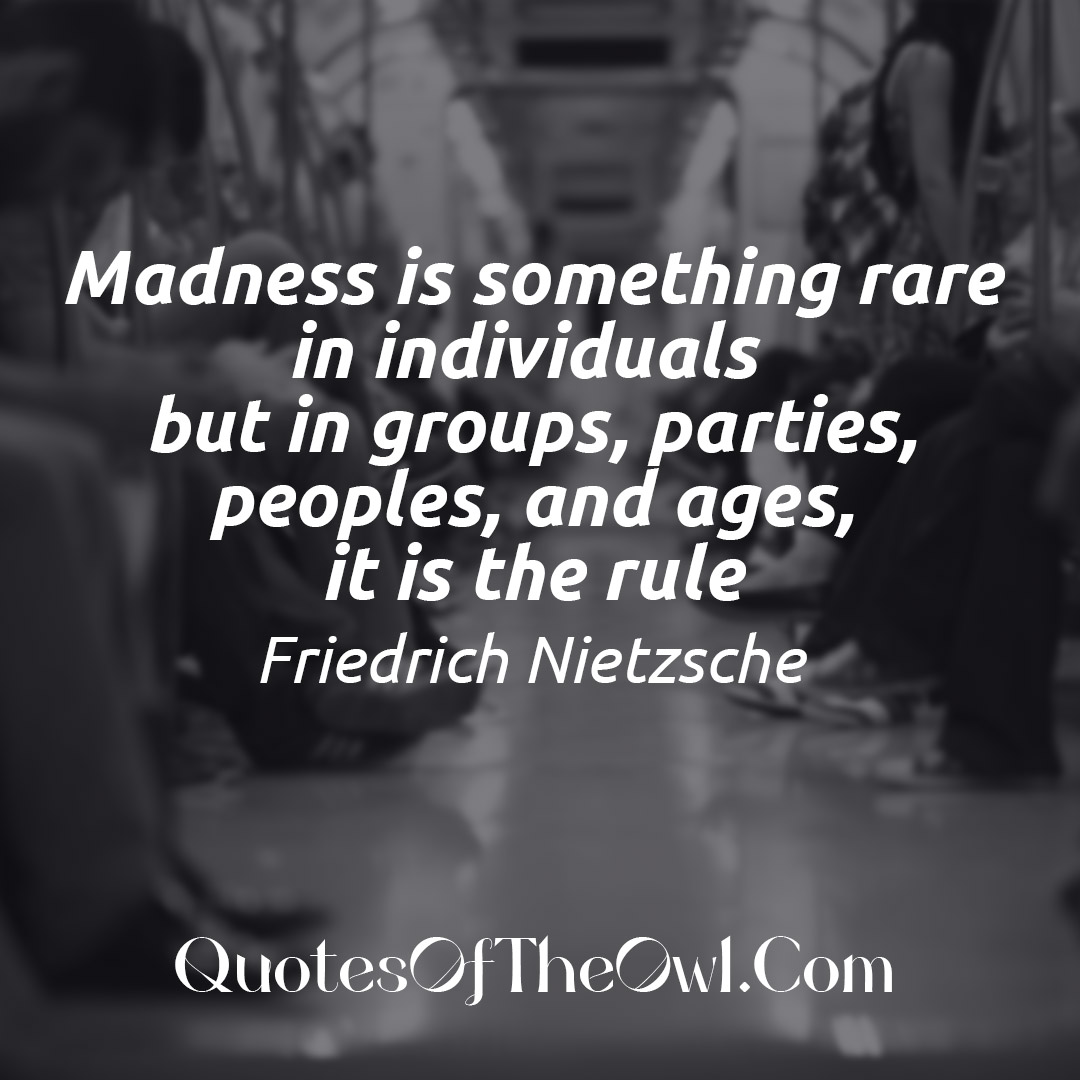What is the Meaning of Friedrich Nietzsche’s Quote: “Madness is something rare in individuals – but in groups, parties, peoples, and ages, it is the rule.”?
Friedrich Nietzsche was a renowned philosopher who lived in the late 19th century. He was known for his profound and often controversial ideas on various aspects of human life. One of his famous quotes is “Madness is something rare in individuals – but in groups, parties, peoples, and ages, it is the rule.” In this article, we will explore the meaning of this quote and how it relates to human behavior in different settings.
Understanding Nietzsche’s Quote
Definition of Madness
Before delving into the meaning of Nietzsche’s quote, it is important to first understand the concept of madness. Madness can be defined as a state of mind characterized by severe mental disorder, erratic behavior, and a lack of rationality. It is a condition that can affect individuals, groups, parties, peoples, and ages.
Rare in Individuals
Nietzsche’s quote suggests that madness is rare in individuals. This means that it is not a common occurrence in people who act independently and think for themselves. Individuals who possess a sound mind and have control over their thoughts and actions are less likely to exhibit signs of madness.
The Rule in Groups, Parties, Peoples, and Ages
On the other hand, Nietzsche suggests that madness is the rule in groups, parties, peoples, and ages. In other words, when people come together as a group, they are more likely to act irrationally and exhibit behavior that is considered mad. This is because group dynamics and social pressure can influence individual behavior and lead to a lack of rationality.
Examples of Madness in Groups, Parties, Peoples, and Ages
To understand the meaning of Nietzsche’s quote better, it is helpful to look at some examples of madness in different settings.
Groups
In groups, madness can manifest in different ways. For example, in a mob, individuals may act irrationally and commit acts of violence that they would not commit as individuals. Similarly, in a cult, members may exhibit behavior that is considered mad due to the influence of the group’s ideology and practices.
Parties
In parties, people may engage in reckless behavior and make poor decisions due to the influence of drugs or alcohol. They may also act impulsively and engage in activities that they would not do in a sober state of mind.
Peoples
In the context of peoples, madness can be observed in the behavior of societies and cultures throughout history. For example, the Nazi regime in Germany during World War II exhibited madness in their treatment of Jews and other minorities. Similarly, the Khmer Rouge regime in Cambodia exhibited madness in their attempt to create a utopian society.
Ages
In different ages, madness can be observed in the behavior of societies and cultures. For example, during the Middle Ages, people believed in superstitions and engaged in practices that were considered irrational. Similarly, during the Cold War era, countries engaged in the arms race and nuclear weapons development, which can be seen as a form of madness.
Conclusion
In conclusion, Nietzsche’s quote “Madness is something rare in individuals – but in groups, parties, peoples, and ages, it is the rule” suggests that people are more likely to exhibit behavior that is considered mad when they are part of a group. Group dynamics and social pressure can influence individual behavior and lead to a lack of rationality. The examples of madness in different settings show how this quote is relevant even in modern times.

